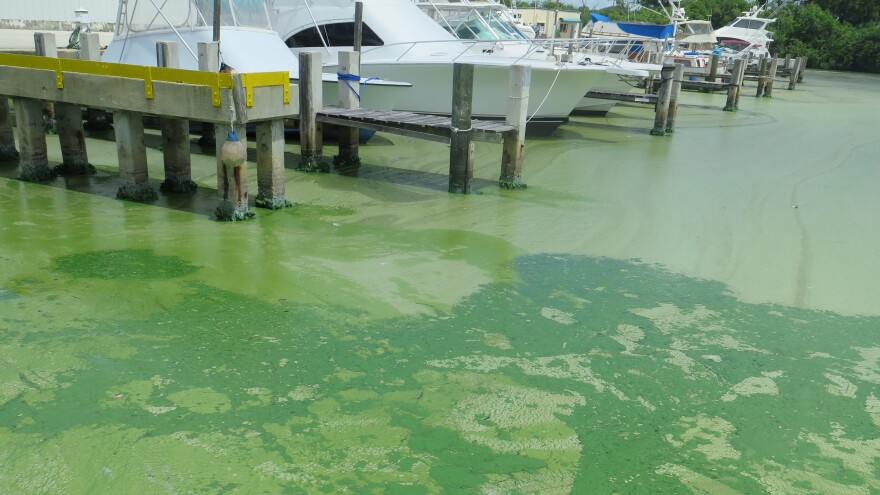New state regs finalized: Cape Cod towns must reduce nitrogen pollution or homeowners will pay
CAI
Eve Zuckoff
June 21, 2023

The state is pushing Cape Cod towns to seriously speed up plans to reduce nitrogen pollution, using the threat of sticking homeowners with major bills to spur action.
Officials with the Massachusetts Department of Environmental Protection on Wednesday finalized regulations designed to incentivize towns to obtain a Watershed Permit, which can be earned by designing and implementing 20-year wastewater solutions. Each town is expected to tailor its plans to the needs of the community and individual watersheds.
In towns that obtain the permit, homeowners could avoid a seven-year requirement to upgrade or replace their septic systems, which can cost more than $25,000.
The state’s ultimate goal is to clean up degraded waterways.
“Excessive nitrogen, primarily from septic systems, leaches into groundwater, which discharges into surface water bodies where it causes eutrophication, promotes the growth of nuisance plants, weeds and algae,” said Gary Moran, deputy commissioner of the state’s Department of Environmental Protection. “We effectively end up with coastal estuaries that don’t meet water quality standards and that can be unpleasant to look at and even smell.”
“It also has impacts on the economy through decline in fishing, shellfishing, recreational opportunities, tourism, and there’s even an impact on real estate values,” he said.
In recent years, Moran said, towns have made some progress to address nitrogen pollution, but it hasn’t been enough to make a difference in the environment.
“The progress is inconsistent and sometimes unpredictable. And we really need to make sure that we take timely action to address this. If we don’t take action now, the problem is just going to continue to get worse.”
To lower the nitrogen load and obtain the essential Watershed Permit, towns will have a number of options to explore.
“We’ll see some densely developed areas being sewered and get very high levels of treatment,” Moran said. “We’re already seeing communities trying alternative approaches, whether it’s aquaculture, permeable reactive barrier walls, stormwater approaches, or … fertilizer management.”
In a draft version of the regulations, state officials proposed that communities on the South Coast and Islands would also have to comply, but after significant pushback, officials scaled back the regulations to only affect Cape Cod towns. Community members in the other areas said they have not had adequate time to investigate and plan to address nitrogen pollution, and that they may face different sources of pollution and environmental conditions than Cape Cod.
The state initially proposed that a five-year upgrade timeline begin upon the effective date of the regulations. The state will now give towns two years to opt into a watershed permitting process by filing a Notice of Intent or Watershed Application, and then five years after that to complete the permitting process.
“We believe that it will work,” Moran said. “Cape communities — to varying degrees and with different progress — all have been working towards addressing this problem. … We think the Watershed Permit process will provide the communities with the opportunity to continue to design the solutions that are most effective, hopefully most affordable for their communities.”
Still, if towns are not able to obtain permits, some are concerned that locals with fixed, low, and even middle incomes could be unable to pay the high price to replace their backyard septic systems.
“Barnstable’s very fortunate that we have a professional staff who can undertake this level of effort,” said Barnstable Town Manager Mark Ells. “But not everybody’s geared up the way Barnstable has in the last few years to be able to do that. And within these regulations are absolute timelines. We’re well into multiple years of preparing. And everybody’s at a different stage. So it will be a very unique community-by-community discussion.”
The stakes, he said, are high.
“This is people’s homes we’re talking about.”
In smaller communities, especially, the question of whether the regulations will work as designed, comes down to funding.
“If we don’t figure out a way to make these investments [in wastewater treatment] affordable and workable financially, either the added tax burden or the added user fee burden will continue to lead to the exodus of the working class here on Cape Cod,” said Mark Forest, Yarmouth Select Board member. “I do think some folks are going to freak out over just the notion that they may have to upgrade … when they’re just barely hanging on by the Social Security check.”
Currently, towns have the ability to tap into the Cape and Islands Water Protection Fund, which assists with wastewater projects. It’s supported by a 2.75 percent excise tax on lodging or short-term rentals and provides additional substantial loan forgiveness. The Massachusetts Clean Water Trust also provides zero percent financing for eligible nutrient reduction projects, as well loan forgiveness to disadvantaged communities.
Ultimately, Forest said, he believes obtaining the permit is the right thing to do to clean up local waterways, and that it won’t come at the cost of already overburdened homeowners.
“I honestly think we can do it. You know, we’ve figured out big challenges like this in the past,” Forest said. “We’re undaunted. We’re going to keep going forward with an eye on our taxpayers and our residents.”
New state regs finalized: Cape Cod towns must reduce nitrogen pollution or homeowners will pay – CAI
